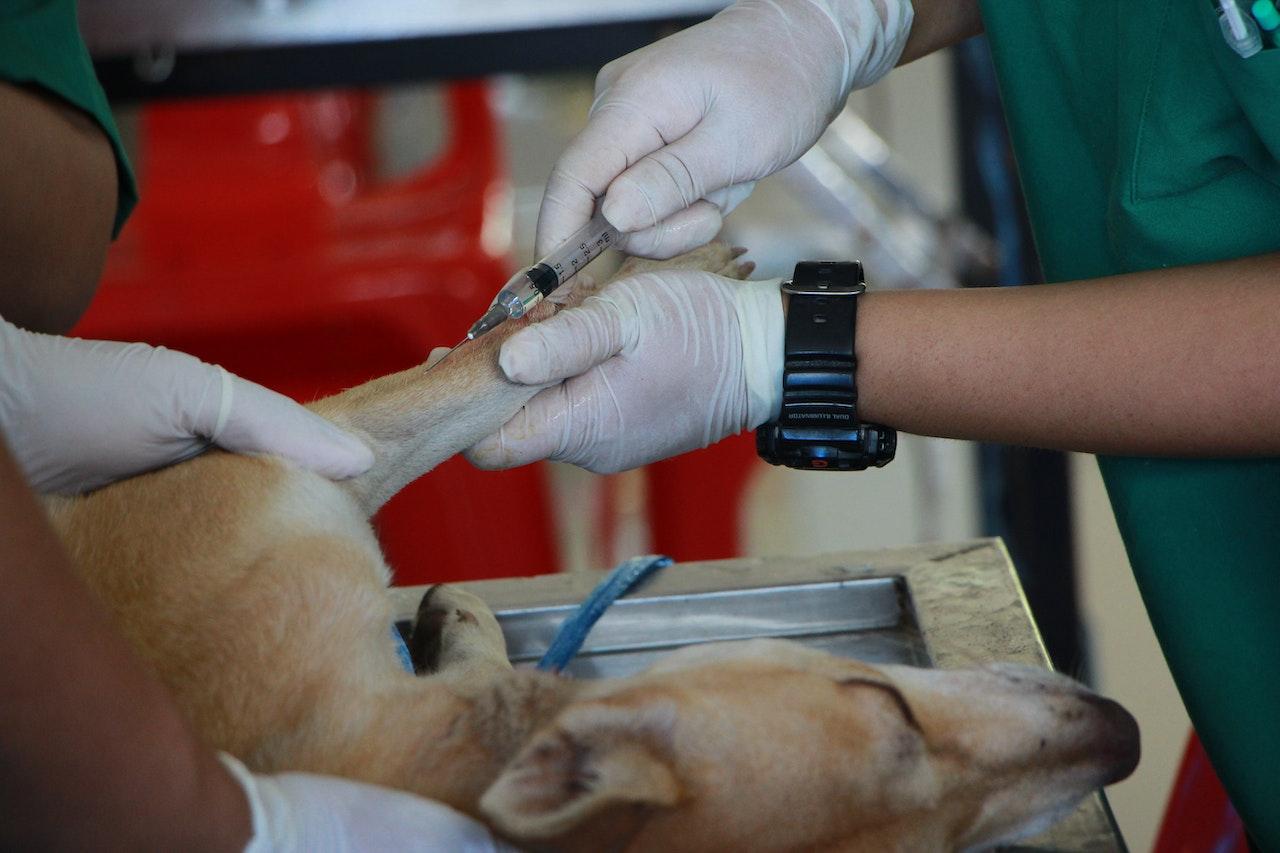FSB, Street No. 22, Punjab, Pakistan
Vaccination is an essential part of a dog’s healthcare routine. It helps to protect dogs from various infectious diseases and ensures their overall health and well-being. However, sometimes pet owners may accidentally get their dogs vaccinated twice for the same disease. We will look at the effects of a dog receiving two vaccinations, possible hazards, and ways to avoid it in this post.
What happens if a dog gets vaccinated twice?
Generally, if a dog gets vaccinated twice for the same disease, it is not harmful or dangerous. Most vaccines are designed to be given in a series of doses to ensure adequate protection against the disease. The second dose can help to boost the immunity that the first dose provided, which may increase the level of protection against the disease.
However, there are some things to keep in mind if your dog gets vaccinated twice:
Risk of side effects:
Receiving multiple doses of a vaccine within a short period of time may increase the risk of side effects. Some common side effects of vaccines include fever, local inflammation at the injection site, and lethargy. Typically, these side effects are minor and go away on their own after a few days. However, in some cases, they may be more severe and require medical attention.
Over-vaccination:
Certain pets may be at risk of bad reactions to vaccines or possibly certain chronic health disorders if they receive too many vaccinations. Over-vaccination occurs when a dog receives more vaccines than necessary or when they receive vaccines too frequently. It can lead to immune system problems and other health issues.
Vaccine efficacy:
Vaccine efficacy can also be a concern if a dog gets vaccinated twice. Receiving the same vaccine twice may not provide any additional benefit in terms of protection against the disease. In some cases, it may even decrease the efficacy of the vaccine.
Increased cost:
Getting a vaccine twice can also mean that pet owners have to pay for the extra dose. Vaccinations can be expensive, and receiving unnecessary vaccines can add to the overall cost of pet care.
Ways to avoid giving a dog the same vaccine twice:
Keep vaccination records:
Keeping track of your dog’s vaccination records is crucial in preventing them from getting vaccinated twice. Ensure that you have an accurate record of when your dog received their last vaccine and which vaccine it received. Share these records with your veterinarian to ensure they have the most up-to-date information.
Work with a reputable veterinarian:
Avoiding your dog from receiving the same vaccination twice requires collaboration with a trustworthy veterinarian. Your veterinarian should be knowledgeable about the appropriate vaccine schedules and should be able to advise you on when your dog needs their next vaccine.
Follow the recommended vaccine schedule:
It is essential to follow the recommended vaccine schedule for your dog. Most vaccines require multiple doses to ensure adequate protection against the disease. Ensure that you follow the recommended schedule and do not deviate from it unless advised by your veterinarian.
Ask your veterinarian for advice:
If you are unsure about whether your dog needs a particular vaccine or if you are concerned that it may have received a vaccine twice, speak to your veterinarian. They will be able to advise you on the appropriate course of action and ensure that your dog receives the necessary vaccines at the appropriate times.
Conclusion:
If a dog receives a vaccine twice, it is unlikely to cause any harm or negative consequences to the dog’s health. In fact, some vaccines may require multiple doses or booster shots to ensure that the dog develops adequate immunity to the targeted disease.
However, receiving unnecessary vaccinations can be costly and may expose the dog to unnecessary risk of side effects or adverse reactions. Therefore, it is important to follow your veterinarian’s vaccination schedule and recommendations to ensure that your dog receives the appropriate vaccinations at the right time.
If you are unsure whether your dog has already been vaccinated against a particular disease, you can consult with your veterinarian to review your dog’s medical records and vaccination history. They can advise you on whether a repeat vaccination is necessary or if your dog has already developed sufficient immunity to the disease in question.




